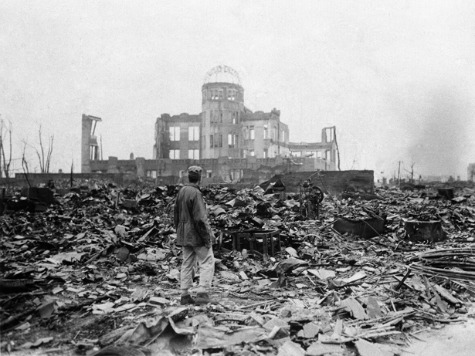A debate going back over half a century continued over atomic weapon usage, as conservative columnists Michael Barone and Timothy P. Carney wrote competing columns in the wake of the Hiroshima bombing’s 68th anniversary.
Carney opposed the atomic weapon usage, saying, “Ending a war is a good thing. Killing civilians a bad thing.” He said that the Japanese civilian targets were not “collateral damage” but “intended targets” of the two atomic strikes in Hiroshima and Nagasaki. He said that if the United States knew Japan was on the brink of surrender, as some historians have claimed, then the dropping of the bombs was “inexcusable.”
However, Barone counter-punched, siding with President Harry Truman and claiming that the atomic bombings of Japanese cities were necessary to ending the war and saving tens of thousands, perhaps hundreds of thousands of lives.
He disagreed with Carney over the loss of civilian life in war and said, “In modern war against an evil regime attacks on civilians are regrettably necessary and indeed civilian deaths cannot be avoided.”
Barone claimed that many experts agreed with him, including late Senator Daniel Patrick Moynihan and literary scholar Paul Fussell, who was an infantryman in WWII. He also spoke of the tremendous ferocity of Japanese soldiers and civilians near the end of the conflict, and how their tenacity was increasing in the final days of the Pacific War, as American forces neared the homeland.
Finally, Barone surmised that the dropping of two, relatively small atomic bombs actually served to “inoculate” world leaders from using the devices again.


COMMENTS
Please let us know if you're having issues with commenting.